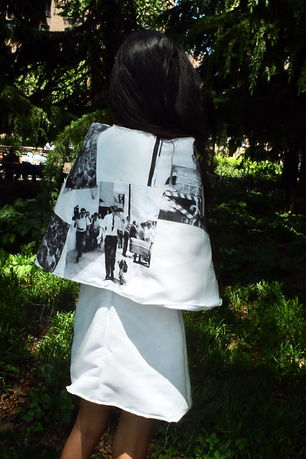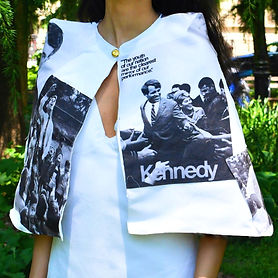amouricana
by sanjula
The Bobby Cape



In his position as Attorney General, Bobby Kennedy begun a stride of supporting the cause of Civil Rights from a position of power.
Outraged at the lack of Black lawyers in the Justice Department, he increased the number tenfold from six to sixty. He worked tirelessly to ensure that the March on Washington for Jobs and Freedom would go on without violence.
Kennedy was instrumental in arranging for the Freedom Riders to continue their passage safely, which was no easy feat as Southern Democrats were firm believers in segregation.
While the Justice Department pursued all legal avenues to integrate the segregated schools of the Deep South, he personally spearheaded the creation of a network of private schools for Black students in Prince Edward County, Virginia where officials had responded to an integration order by dismantling the public school system and replacing it with private schools for only white children.
He pushed President Kennedy to make his Civil Rights Address on national television. At such a pivotal moment, other advisors did not believe the political risk of such an Address was worth it since it could alienate the southern states. Bobby was convinced that Civil Rights was the greatest moral crisis of the time and any risk was worth it.
By the end of his tenure as Attorney General, he had made many enemies because of his work on civil rights. Effigies of him were burned. Public officials openly wished for his death. Police officers cursed his name while engaging in police brutality. Klansmen who threatened Freedom Riders with pistols and steel pipes shouted, “Just tell Bobby [Kennedy] and we’ll do him in, too.”
But, as he told his daughter, a person could be judged by the enemies he made.